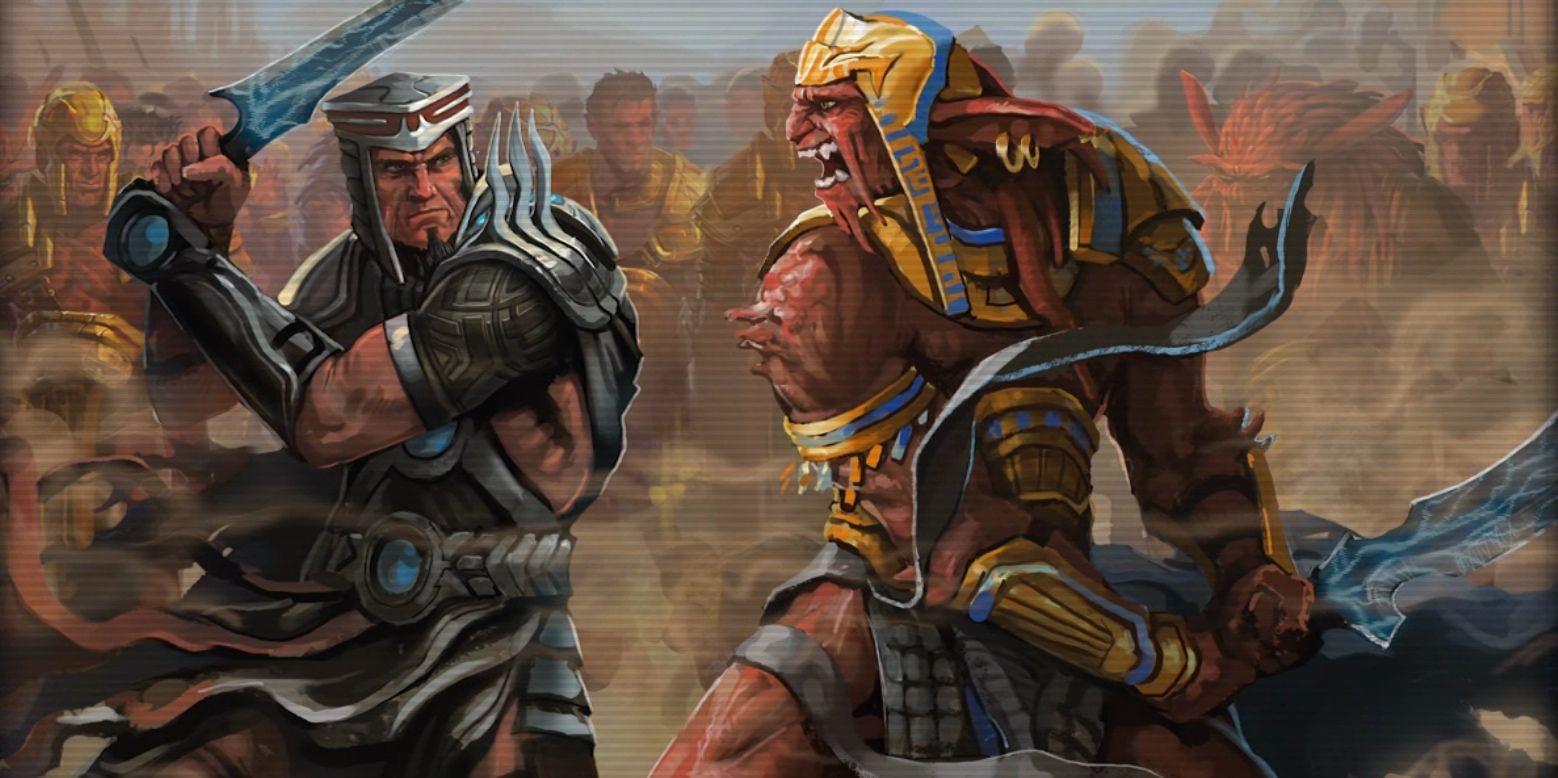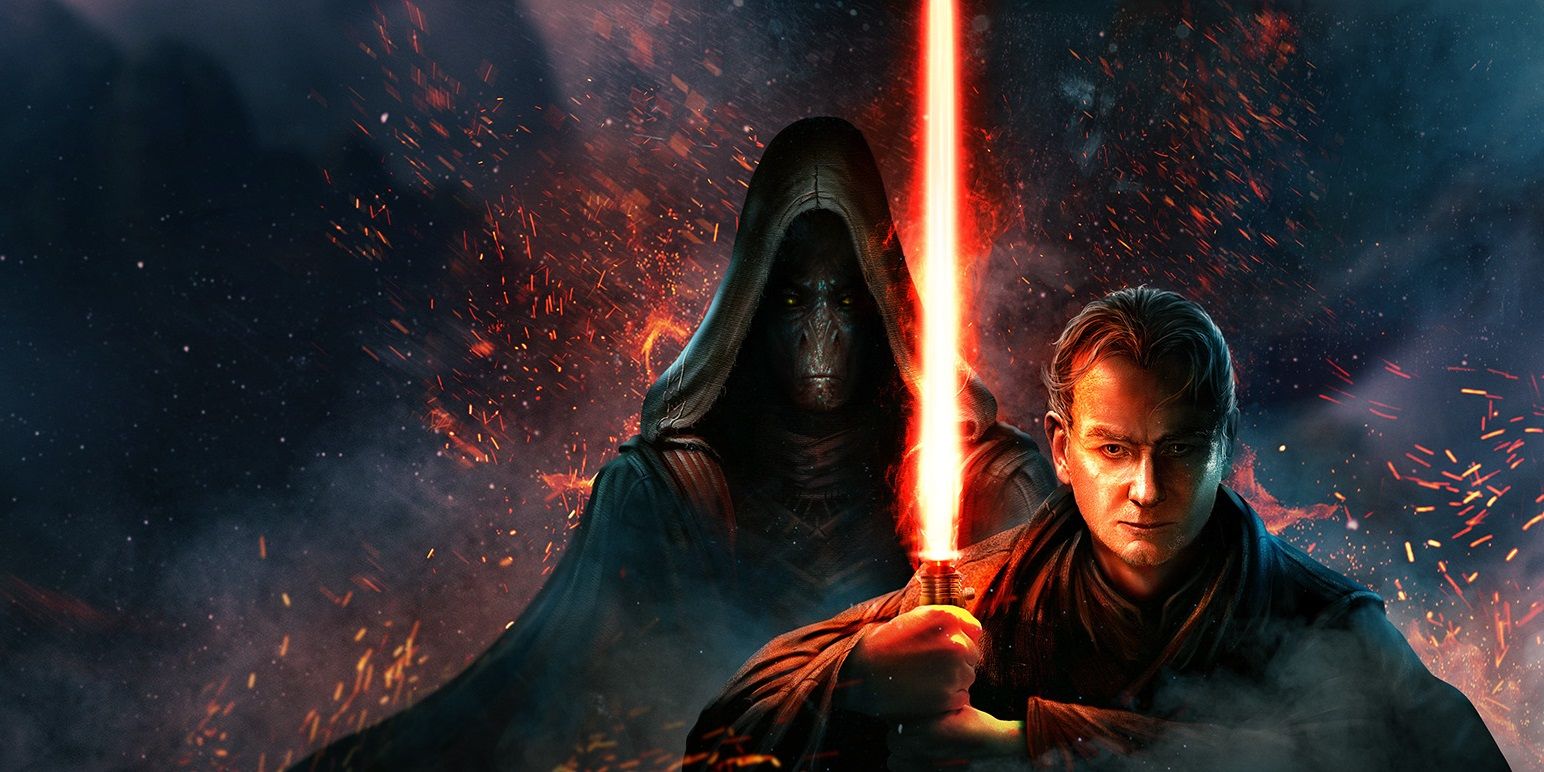Jedi were supposed to be the heroes in Star Wars. They fought for peace and justice in a galaxy filled with evil and crime. For untold millennia, the Jedi’s mortal enemy has been the Sith. Since they were the Jedi’s adversaries, the Sith have commonly been seen as evil, but an examination of their code wouldn’t automatically lead one to believe that. The Jedi themselves have had some questionable history at times, so when examining the Sith Code, one should ask whether the Sith were necessarily evil or if they were only made out to be evil by the Jedi.
What Does The Sith Code Teach?
The Sith’s philosophy was the result of multiple schisms within the Jedi Order many thousands of years before the Battle of Yavin. While the Jedi advocated for restraint, in terms of both power and emotion, some of their own disagreed. Those Jedi fought for a right to explore the dark side of the Force and eventually created the Sith Order. Their resultant code was written by a Jedi exile named Sorzus Syn, as a polar opposite to the Jed Code. It read, “Peace is a lie, there is only passion. Through passion, I gain strength. Through strength, I gain power. Through power, I gain victory. Through victory, my chains are broken.”
In theory, the code wasn’t designed to be evil. On the surface, the Sith advocated for breaking restrictions and living up to their full potential. They wanted to be free from societal restraints and make their own decisions. However, while the code itself might not have been evil, its application got tricky.
What Morals Does the Sith Code Actually Encourage?
While perfection and freedom didn’t sound like bad ideas, those qualities usually meant that the Sith saw themselves as better than everyone else. Therefore, perfection for a Sith almost always came at the price of someone else’s wellbeing. Basically, most Sith believed they were destined to rule, even if it meant that it was to the detriment of all other beings. In the Darth Plagueis novel, Plagueis once told his apprentice, “You must see every living thing as nothing more than a tool to elevate you, to move you to your destined place. This is our galaxy, Sidious, our reality.” In other words, being a good ruler was never a focus; they simply wanted to rule and make others subservient. In the same manner, the Sith didn’t want to use and serve the Force like Jedi. They wanted to take it and conquer it -- bending the very energy of the universe to their own selfish ends.
The most obvious example of the Sith’s desire to rule was the order’s obsession with destroying the Jedi. The Sith were not content to study the dark side in private after being exiled from the Jedi Order. They wanted revenge, which led to many, many wars between the two sides. Thus, perfection really meant dominion and dominance against anyone that would oppose their beliefs and rise to ultimate authority.
Verdict: Real Sith Are Evil
There were, of course, some exceptions. Some Sith weren’t concerned with domination and revenge. Count Dooku, for example, became a Sith with the hopes of bettering the Republic by wiping it out and starting anew. Likewise, Darth Gravid tried to incorporate both the light and dark into his teachings, and Darth Vectivus simply studied the Force without trying to destroy the Jedi or conquer the galaxy.
However, all of those Sith were the exception to the rule of Sith philosophies and morality. Other, true Sith would not have approved of their motivations for a simple reason. They were hindering the Sith’s progress and purpose for existing. In his Book of Sith, Palpatine wrote, “To advance the cause of the Sith, you must fight those who would hold back progress. You, and those who succeed you, are building an arsenal of dark side potency.”
To prove the point, Dooku was a pawn in the game to acquire Vader. Likewise, Gravid was killed by his apprentice, and Vectivus was shunned by his order, left to die and not pass on his knowledge to an apprentice. In short, Sith subscribed to the philosophy of self-promotion and aggrandization at the expense of others. Anyone who advocated otherwise would not have been considered a true Sith. So, yes, Sith had to be evil in order to be considered a true Sith.




